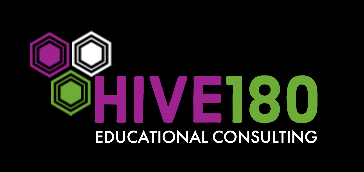
REFLECTIONS ON AUTHORIZING
I just read a really good op-ed by Karega Rausch, President and CEO of NACSA, and David Greenberg, VP of Authorizer Learning and Development. They make so many excellent points that I’d like to do a mini blog series addressing some of them …. So here’s the kickoff!
In my experience over the last 20 years in the charter sector, I’ve seen so, so many positive steps forward in authorizing and quality chartering, much of that due to NACSA’s work, the work of state associations, as well as the growth in the sector of experienced practitioners who learned via the School of Hard Knocks and share their wisdom with newbie charter start-ups.
In the past few years, I’ve been tapped to be a part of district charter petition evaluation and capacity interview teams and have had an opportunity to see the other side of the table. I now have a 360 degree view, and from that, have some thoughts …
THE CHARTER PETITION
As Rausch and Greenberg note in their op-ed, the applications can be overly burdensome for both the charter petitioning group and authorizer review teams. More is not always better, and in fact, it can lead to a less thorough evaluation of petitions. Why? Because those reviewing petitions typically are district personnel and other qualified professionals who have a day job and only have so much time to devote to supporting evaluation. Hundreds of pages of narrative and attachments are practically impossible to review for most that have less flexible schedules. Things get missed – things that could help support authorization of a great school or that could uncover potential risks. Petition requirements should be thoughtfully considered and streamlined to focus on the most critical areas of a quality school.
YEAR 0 – CHARTER IMPLEMENTATION PLANNING
In my experience, the quality of the charter petition and the capacity of the founding team is only about half of the guarantee that a school is successful when its doors open. The Year 0 Implementation Plan is just as important, and in fact, when accompanied with a petition, can really help identify capacity gaps and potential challenges when the school is operational. When petitioners have a structured approach to opening their doors, more effective budget decisions are made, personnel and organizational structures are more thoughtfully planned, plans for professional development are considered, timelines are adjusted, and resources and partnerships are re-evaluated. So many schools open their doors without a solid plan – they build their plane while flying it, which leads to compliance issues, student and staff turn-over, and leadership burnout. I wish I saw more authorizers requiring this and more CSOs providing intensive Year 0 support and mentoring to leadership through the first couple of years of a school opening.
CAPACITY INTERVIEWS
Capacity Interviews have really improved through the years. I’ve seen more thoughtful questions and better dialogue amongst reviewers, leading to more fair authorization practices. I am, from the top of my head to the tips of my toes, a charter advocate. Let me rephrase that …. a QUALITY charter advocate. Being trusted to participate with district petition review teams has been a privilege. I believe it has helped the districts see a different side of charter advocates – that we share a goal of ensuring the highest quality charters are opened AND that charters can provide a great option for promoting their own mission and vision for their districts. Being a charter practitioner helps me to identify and share more charter specific challenges, as well as ways autonomy is exercised that may be foreign in a district setting. I also benefit, as I get to hear the district’s concerns from their perspective to better understand how to support future charters in addressing those concerns, which elevates the quality of charter planning. Districts and charters alike benefit from having experienced district level and charter practitioners on Capacity Interview teams.
